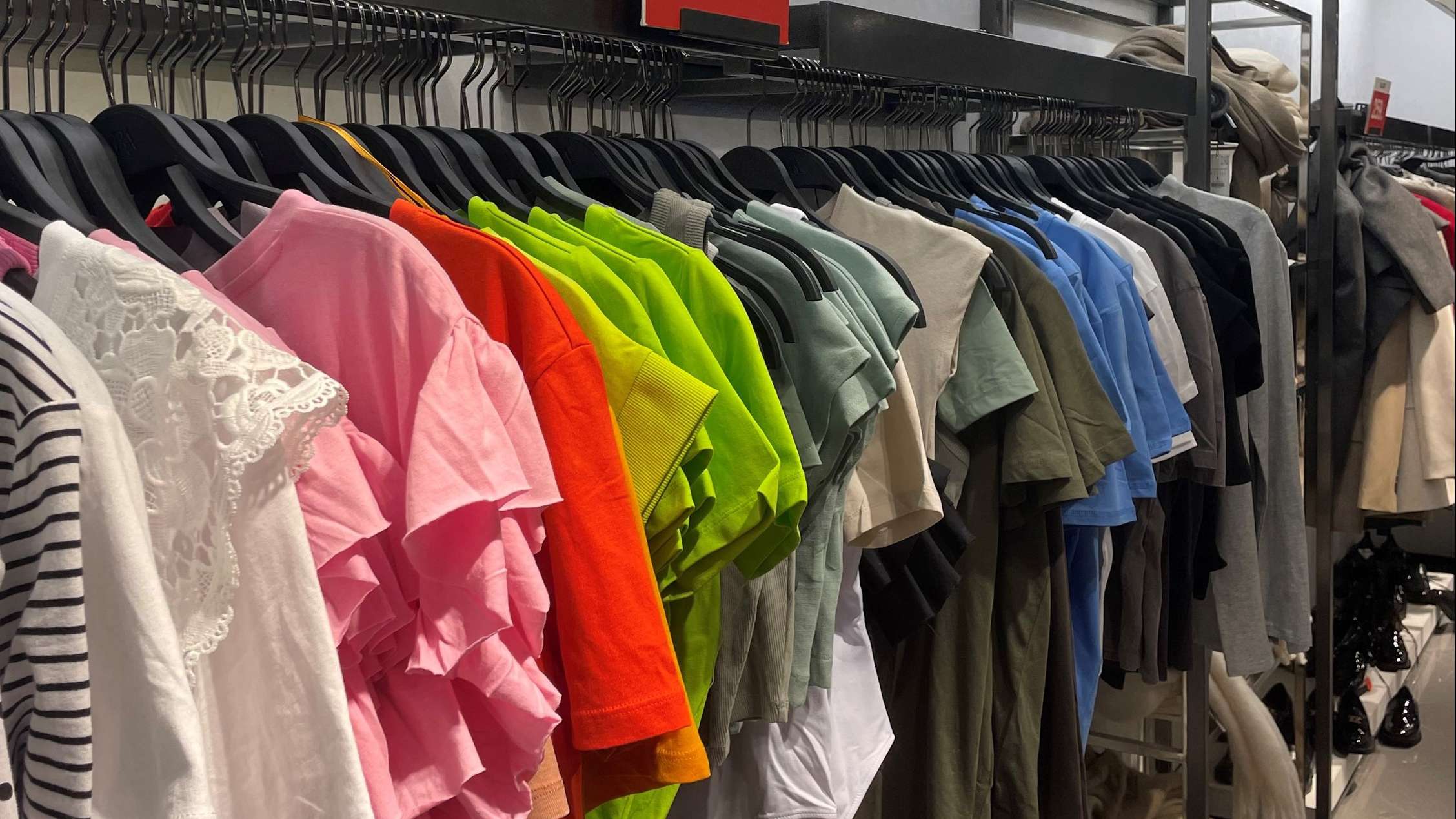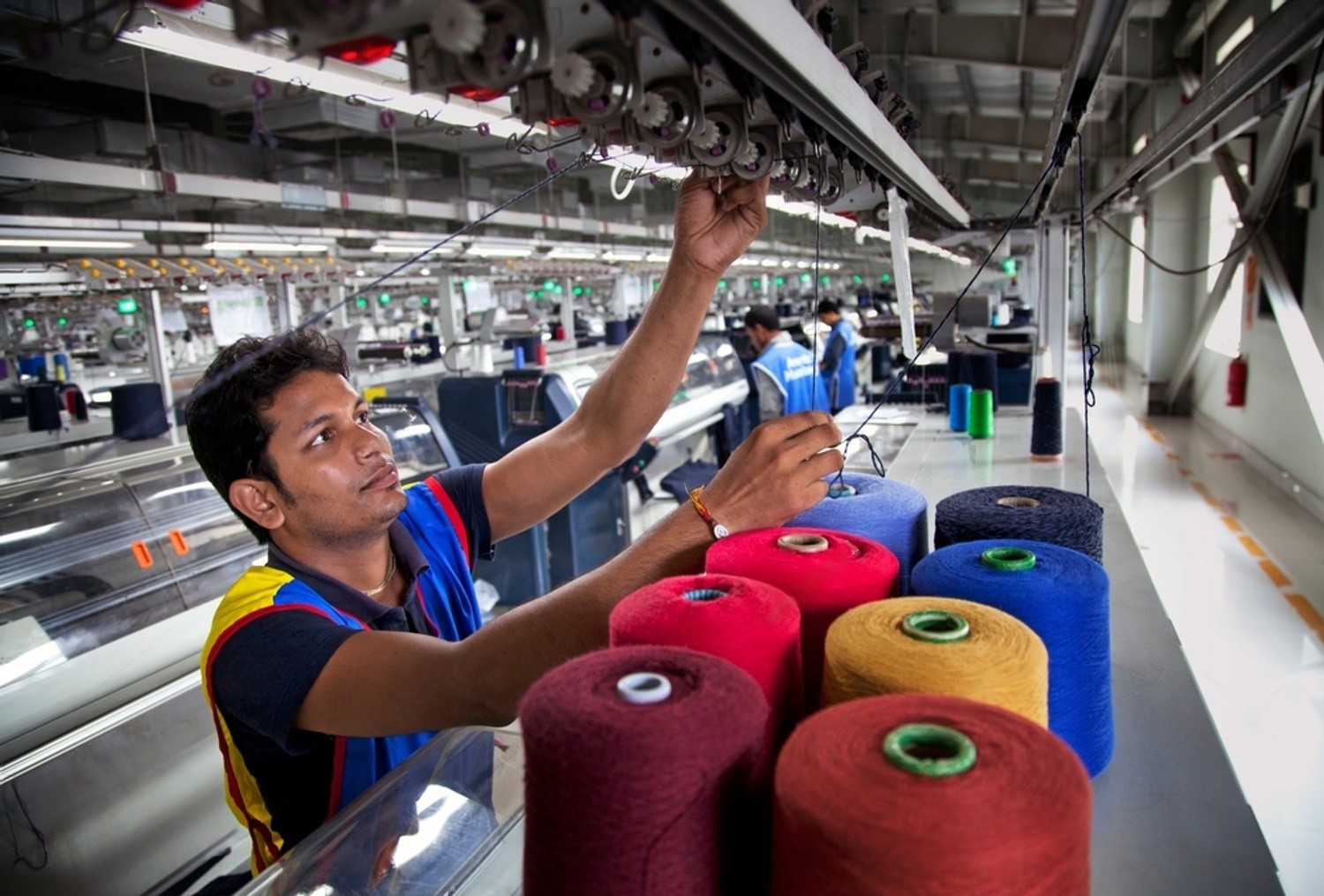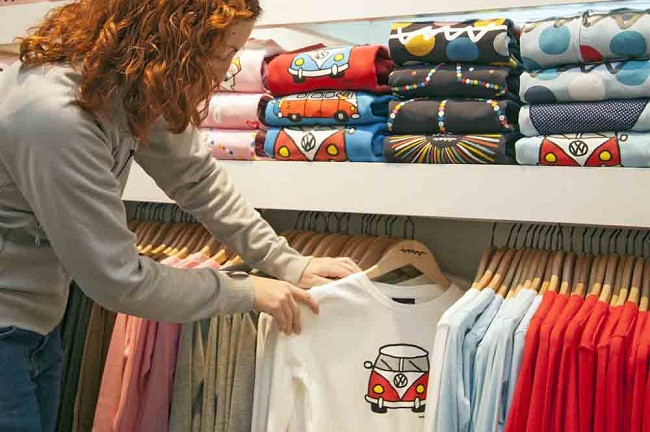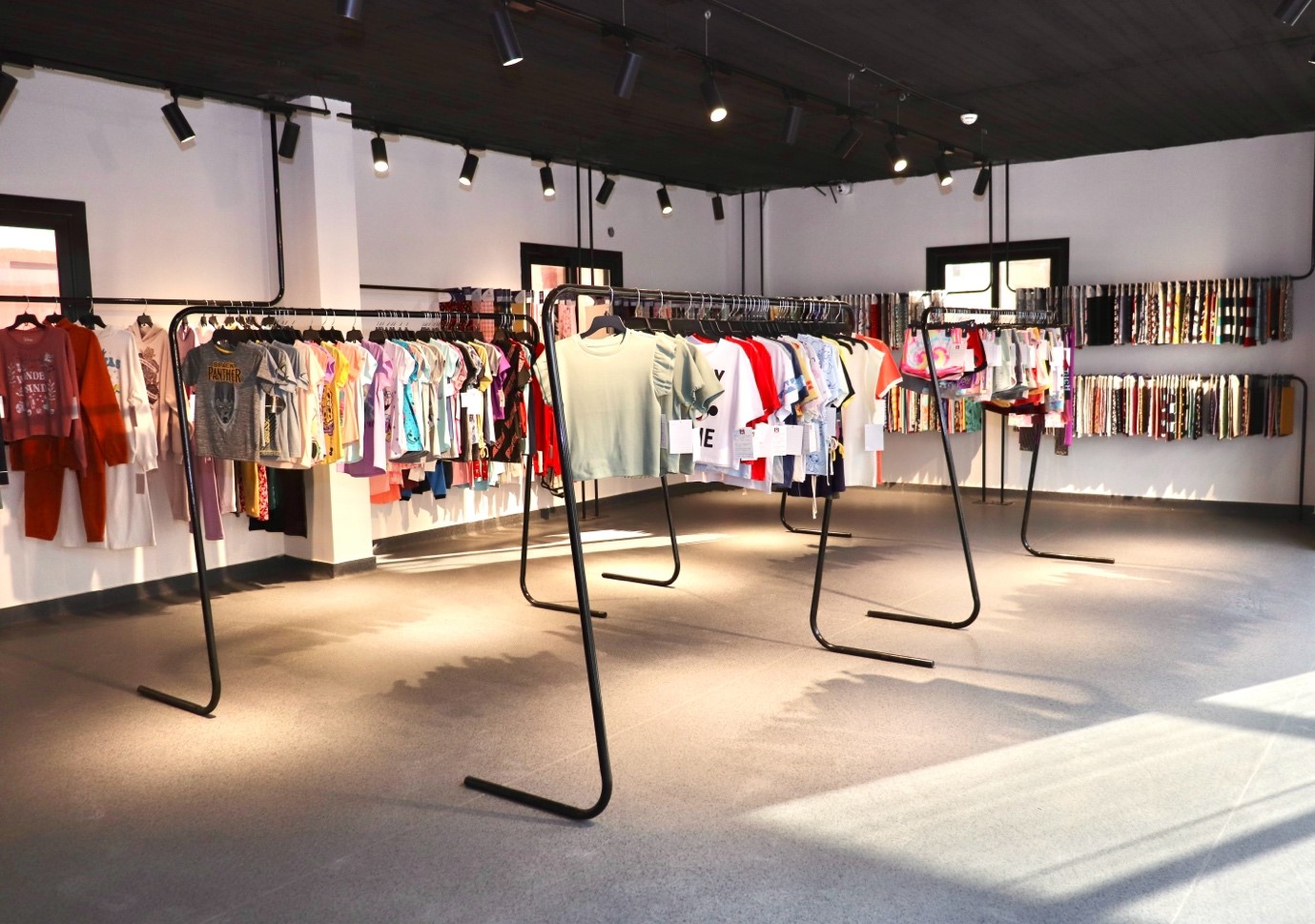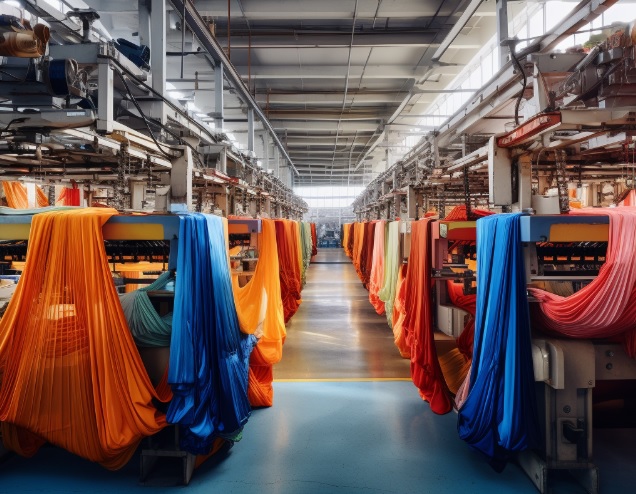FW
The 4th edition of Knitwear Solutions at Première Vision, promises to feature many special events. In just three seasons, Première Vision's platform for creative flatbed knits, knitwear solutions, has strengthened the overall ensemble of Première Vision Pluriel shows. This new space meets the growing need in international fashion markets for knitwear developments.
From February 18 to 20, 2014, at Parc d’Expositions Paris Nord-Villepinte, Knitwear Solutions will organise six Première Vision Pluriel shows exhibiting comprehensive product solutions to designers, products heads and buyers specialised in flatbed knitwear. The September edition witnessed around 3,000 exhibitors displaying their product range.
Knitwear Solutions is also a place to experience exclusive pieces created by Xavier Brisoux presented during the Knitwear Focus forum. And, for the first time, an exhibition of knit pieces by major designers, culled from the Modateca Deanne archive collection, illustrates the industry's creativity around a Futuristic Heritage theme.
www.premierevision.com
Jeanologia, in cooperation with Munich Fabric Start, has developed an ecological garment collection by using EIM (Environmental Impact Measuring) software to cut down on the use of water, energy and chemicals.
This unique garment collection has been produced with sustainable technologies such as laser, ozone and nano-bubbles. EIM software is specific to the garment finishing industry. It’s created to provide laundries, brands and garment finishers with a tool that helps them build sustainable process in production. Design and ecological techniques have been integrated to achieve more eco-friendly jeans but without losing appeal.
Jeanologia is also known for laser, G2, and E-soft technologies. The textile laser avoids the use of harmful techniques that could damage health of workers, allowing important savings of energy, water, chemicals and time. G2 uses ozone washing and oxygen from the atmosphere, allowing washing clothes with savings of over 60 percent in water and energy and about 85 percent in chemicals. E-soft technology softens garments with nano bubbles, saving 80 percent softeners and 98 percent water.
Jeanologia is a Spanish company and a world leader in sustainable technologies for textiles. It won recognition at the WSGN Global Fashion Awards as the best sustainable design team in the world. It has customers across five continents and exports of machinery and services account for 90 percent of the turnover. Jeanologia products and solutions are currently being used in more than 45 countries including Germany, México, Colombia, Brazil, USA, Italy, Portugal, India, China, Russia, Japan, Morocco and Bangladesh.
www.munichfabricstart.com
The 18th edition of Milano Unica, The Italian textiles trade show, is set to welcome 19,000 visitors, including over 5,000 international buyers, who had already participated in the February 2013 edition. Many of them are invited by the 398 Milano Unica exhibitors, of whom 72 come from other European countries.
Milano Unica has made significant structural changes to Moda In, the largest exhibition area within the trade show, rationalizing the entire area in order to better meet market needs. This year, Moda In features a new look and two macro-areas: In Fabrics, the area where the entire textile production dedicated to research and innovation is put on display; and In Accessories, the traditional space dedicated to accessories for apparel. In addition to the vast Area Trend, located at the entrance of Porta Teodorico, two additional areas dedicated to trends have been set up: Trend Hubs, one for each ‘In Fabrics’ and ‘In Accessories’ areas.
With the positive response the past edition received, the presentation of the S/S 2015 Directions by Angelo Uslenghi will give a better approach in the Trend Area and the Trend Hubs. Milano Unica events are important it’s here that different stakeholders get in touch with top notch knowledge and exchange ideas. A multitude of activities are dedicated to young people, eco-sustainability, culture, internationalization and tradition.
www.milanounica.it
As per Bangladesh Textile Mills Association (BTMA) data, the market share of domestic woven fabrics in RMG export is stagnating for the last three years despite rising demand. Though the mills have expanded their production capacity in line with export growth, their market share is stagnating at 35 per cent.
BTMA points out that with 35 per cent local market share, Bangladesh is meeting more than 70 per cent denim demand. However, local mills are yet to start manufacturing high-tech and other woven fabrics. So these fabrics are imported. Lack of investment options is also one of the factors leading to players not setting up high-tech woven mills.
With increasing competition from countries like India, Cambodia, Vietnam, Pakistan coupled with issues like rising wages and transport costs, costlier utility services, high bank rates and other problems are also impacting competitiveness of the export segment.
As per data available from different sources, local millers could meet 35 per cent demand four years back when export for readymade garment was less than $16 billion. The sources says in the last fiscal, RMG exports was more than $20 billion and the current fiscal target is $23 billion but local woven contribution is not increasing. As per experts, foreign direct investments in textile industry could be a solution as the foreign companies can bring their money to manufacture high-tech woven textile products.
www.btmadhaka.com
German denim brand Mustang Jeans has selected Los Gatos, California–based Centric Software for its new product lifecycle management system.
The men’s and women’s jeans brand will implement Centric 8 PLM throughout its entire collection, as well as Centric’s patent-pending collection book for the Fashion iPad App, which helps companies connect to the PLM solution through mobile devices.
Founded in 1932, Mustang specializes in denim and corduroy jeans and holds the license for the Bogner Jeans and Sansibar denim. Mustang selected the web-based PLM solution to help support ambitious growth targets set by the company.
“We are and always have been pioneers—not just in the field of denim but also with regards to innovation and cutting-edge technology. Centric offers a purely web-based solution, excellent mobile technology and deep industry expertise in its team,” said Dietmar Axt, Mustang’s Chief Executive Officer through a statement announcing their collaboration with the technology solution provider.
Mustang is Centric’s first customer in Germany. The Centric 8 PLM solution will help the company “achieve greater alignment between Centric’s development and buying teams in Germany and its agents and suppliers in Asia,” added Centric CEO and President Chris Groves.
www.mustang-jeans.com
The country's apex apparel body, Bangladesh Garment Manufacturers and Exporters Association (BGMEA) has teamed up with ethical trading consultancy Impactt to increase productivity in the readymade garment (RMG) industry.
BGMEA and Impactt signed a memorandum of understanding (MoU) recently, where BGMEA President Md Atiqul Islam along with its other office-bearers, head of DFID Bangladesh Sarah Cook and Chairman of Impactt Bangladesh Private Rosey Hurst, among other representatives of different brands, were present. Both will partner to roll out a program titled 'Benefits for Business and Workers (BBW)' which has already improved efficiency and quality and supported better jobs for workers in 45 factories in the country.
BBW is an innovative, low-cost training and consultancy programme which focuses on improving factories' productivity, efficiency, quality and human resources management and is delivering better jobs for workers. It champions investing in the workforce, proper induction systems, better communications and better access to skills development and promotion, increasing employees' satisfaction and prompting a sense of self-worth while workers are able to enhance their skills and access promotion, achieving better social mobility.
The programme will be rolled out to 200 garment factories in Dhaka and Chittagong by 2015 while Impactt will build the capacity of the BGMEA's productivity improvement cell and Rajesh Bheda Consulting will provide training for the productivity modules.
www.impacttlimited.com
Manufacturers of readymade garments (RMG) in Bangladesh are optimistic about achieving their export growth target in the coming months, owing to improved work conditions and stable political situation. Many international buyers are returning to Bangladesh since the business environment is improving. Most of local exporters have already bagged bigger orders than before and are booked for the next couple of months. As per Exporters’ Association of Bangladesh (EAB), rise in export orders could also lead to need of increasing local production capacity.
Players expect the higher growth of garment exports to continue in the forthcoming months, provided they are able to ensure continuation of the present working and political conditions. Apart from this, exploring new conventional and unconventional export markets like Turkey, Japan is also on their agenda. Recently, exports of garment items, the highest foreign exchange earning sector in Bangladesh, increased in some new destinations such as Japan, South Africa, Canada, China, India, Australia, New Zealand and in some Latin American countries.
The garment sector in Myanmar is facing a host of problems. The long list includes: transport, logistics, infrastructure and electricity supply. But the most serious is the shortage of skilled labour. Consequently, Myanmar’s garment manufacturers are finding it difficult to secure high-end contracts. Most factory owners are willing to take on workers with no experience and train them in-house. But once they are trained workers leave for better salaries.
After the EU lifted trade sanctions in April 2013, numerous garment factories have sprouted in the country. There was a great demand for labour and they started luring skilled workers away from their present workplace. But now with lack of skilled labour, production is at a standstill.
Myanmar’s garment workers have one of the lowest minimum wages in the region. And workers of really high caliber prefer to leave the country in search of higher-paying work. The bright spot is that as political and market unrest plagues Cambodia, Thailand and Malaysia and China, investors from Europe, America, Japan, Korea and China are turning their sight on Myanmar, where they see better possibilities, even if these are not immediately obvious.
 REPORT_ Salvatore Ferragamo consolidated revenues for the fiscal year 2013 were up by 9 percent at current exchange rates and by 11 percent at constant exchange rates versus financial year 2012. All geographical areas, with the sole exception of Japan, registered in financial year 2013 a double-digit growth in turnover. The Asia Pacific area is confirmed as the group’s top market in terms of revenues, representing about 37 percent of the total in financial year 2013. A major contribution was given by the retail channel in China, which recorded a 20 percent growth compared to the same period in 2012.
REPORT_ Salvatore Ferragamo consolidated revenues for the fiscal year 2013 were up by 9 percent at current exchange rates and by 11 percent at constant exchange rates versus financial year 2012. All geographical areas, with the sole exception of Japan, registered in financial year 2013 a double-digit growth in turnover. The Asia Pacific area is confirmed as the group’s top market in terms of revenues, representing about 37 percent of the total in financial year 2013. A major contribution was given by the retail channel in China, which recorded a 20 percent growth compared to the same period in 2012.
 xchange rates and by 11 percent at constant exchange rates versus financial year 2012. All geographical areas, with the sole exception of Japan, registered in financial year 2013 a double-digit growth in turnover. The Asia Pacific area is confirmed as the group’s top market in terms of revenues, representing about 37 percent of the total in financial year 2013. A major contribution was given by the retail channel in China, which recorded a 20 percent growth compared to the same period in 2012.
xchange rates and by 11 percent at constant exchange rates versus financial year 2012. All geographical areas, with the sole exception of Japan, registered in financial year 2013 a double-digit growth in turnover. The Asia Pacific area is confirmed as the group’s top market in terms of revenues, representing about 37 percent of the total in financial year 2013. A major contribution was given by the retail channel in China, which recorded a 20 percent growth compared to the same period in 2012.
Europe posted an increase in revenues of 13 percent, compared to the same period in
2012. Double-digit revenue growth was recorded also in North America, with an increase of over 12 percent in financial year 2013. The Japanese market showed an increase in revenues of one percent in financial year 2013. Revenues in Central and South America showed an increase of 15 percent. Salvatore Ferragamo is based in Italy. The group is active in the creation, production and sale of shoes, leather goods, clothing, silk products and other accessories, as well as women’s and men’s perfumes. The group’s product range also includes eyewear and

